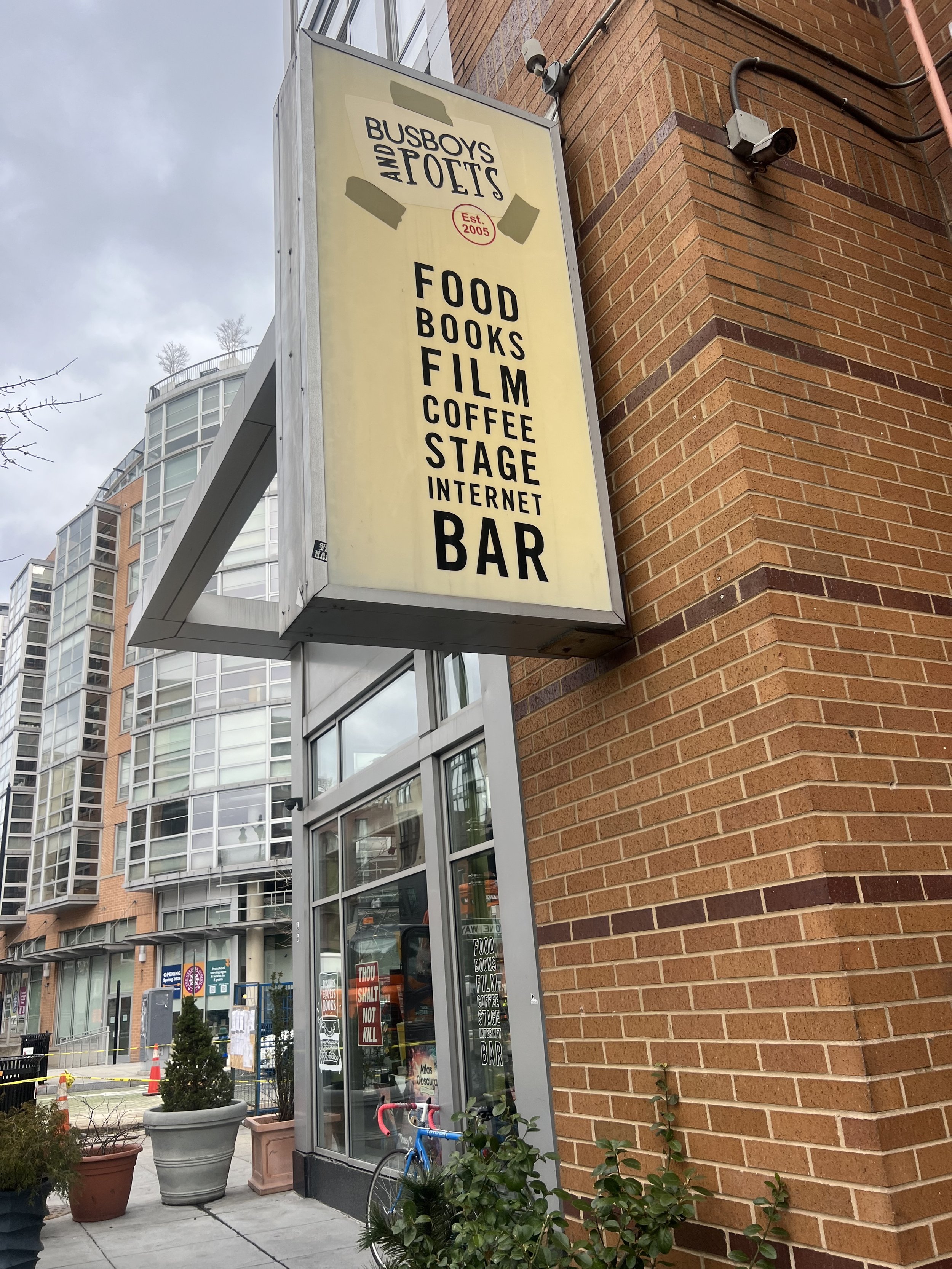Ode to Busboys and Poets
Our lives are shaped by the interplay of history, institutions, social norms, culture, and the individuals and locations we encounter. Leadership coach Richard Strozzi succinctly terms this multifaceted influence as “sites of shaping.” A place that is a site of shaping for me is Busboys and Poets.
Busboys and Poets, a longstanding gem in Washington DC, is a unique place blending a restaurant, bar, bookstore, poetry stage and community space. Busboys was established two years after the start of the Iraq War. I was there shortly after opening night and there was a palpable sense that we were in a special place at a special point in history.
During that time many people opposed the Iraq war and activism was surging among the youth. It quickly became a nucleus for activism. Simultaneously, the Black community was embracing natural hair, redirecting our focus and appreciation towards all things African, indigenous —literature, art, music, and fashion. This era also marked a fascinating time for entrepreneurs, as a sudden demand for natural hair products emerged, filling a void in traditional stores. I vividly recall ordering my first hair product by mail in 2004.
I dare say that the early 2000s marked a second Black renaissance from DC to CA and resonating globally. For those in DC during that time, Busboys and Poets was an epicenter for Black and Brown communities. Since 2005, it has been my go-to place for birthdays, anniversaries, girls’ nights, solo time, writing, studying, or leisure reading. At Busboys and Poets, a sense of visibility and welcome enveloped you, surrounded by images of MLK, Mandela, and Black Art. The atmosphere hummed with an organic mix of people —people of color, white patrons, members of the LGBTQ community, and those with both visible and invisible disabilities. The inclusive ethos required no overt or trite signs; you simply sensed it, knowing you could be yourself.
Busboys and Poets also instilled a belief that one could change the world. Many of us protested the Iraq War, participated in women’s marches, blogged about inequities, created communities, and initiated book clubs focused on African-centered literature, often overlooked in our American education system. During this period, we underwent a process of self-reparenting, challenging cultural norms such as straight hair and the belief that a 9-5 job was the only path to success. We embraced a state of awakening or “woke” consciousness, a term coined during that time to express the renewed connection to black consciousness. Interestingly, in 2024, it has become an epithet, but back then, we genuinely felt like we were emerging from a prolonged slumber, rejecting the world as it had been written.
Busboys and Poets has been such a big part of my growth and meaning making in the world.
I find myself sitting here, nearly two decades later, at the original Busboys and Poets. As I glance around, the weathered furniture seems like the original chairs and couches, the walls exuding an aged charm. The crowd is sparser now, the food just meh. I sense the echoes of my vibrant younger self and others I invited to join me at Busboys over the years. Reflecting on a spot where I sat engaged in a captivating conversation with an Iranian man about 15 years ago, delving into Iran's history during its monarchy. I make my way towards the stage, reminiscing about introducing my daughter and her friends to live poetry in 2014; my daughter would later become a poetry enthusiast. Glancing at the seats by the windows, I recall the numerous dates my husband and I shared in this space.
As a student of history, I recognize that Busboys and Poets has another 25 or 50 years, or even more, before historians fully capture its impact and influence in the annals of history. By then, I’ll likely be in my late 60s or 90s. Anticipating potential lapses in memory, I sit here once more, reminiscing and affirming to myself “that a time was had.” I was young, vibrant and plugged in during the second Black renaissance, or whatever designation historians may assign to it in the future.
Thank you, Busboys.



